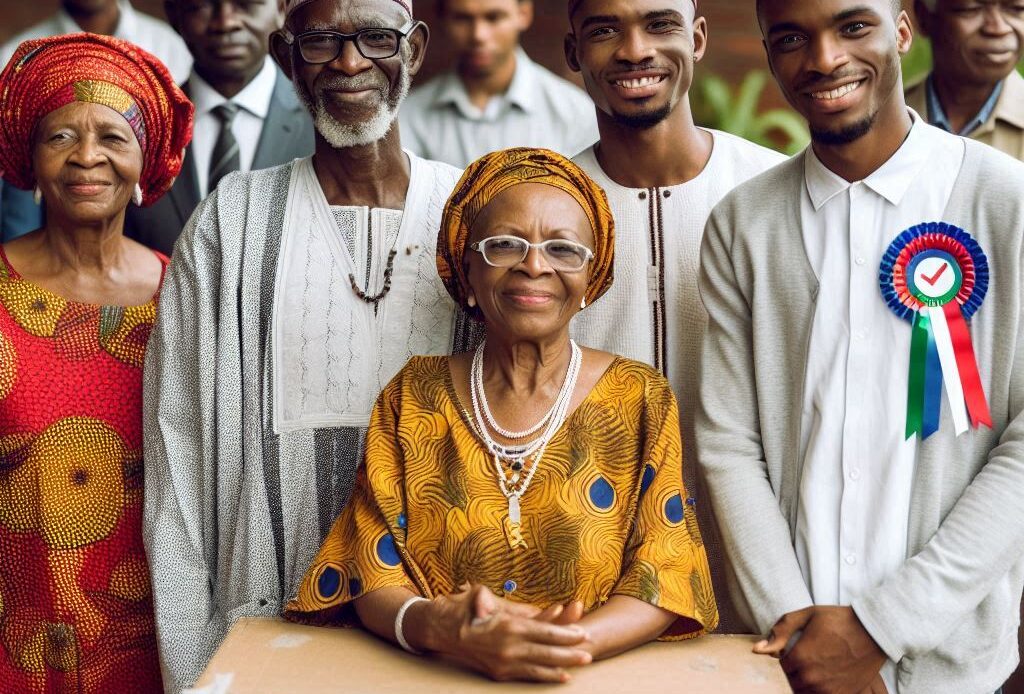
Let’s be honest: for many Nigerian Catholics today, politics is a dirty game. We’d rather debate whether Judas is in hell than talk about local elections. But is that really the right approach?
Earlier today, I sat down with the Bishop of my Diocese, and he reminded me (again) that those of us on social media platforms have a responsibility to constantly enlighten Christians about our role in politics, especially now that we’re preparing for the 2027 elections in Nigeria.
As followers of Christ, we’re not called to avoid the world — we’re called to transform it.
“Render unto Caesar… and to God”
When Jesus said, “Give to Caesar what is Caesar’s and to God what is God’s” (Mark 12:17), He wasn’t telling us to ignore politics. He was drawing a line of responsibility. Caesar may get his coin, but God gets your conscience. That conscience is precisely what must guide our engagement in political life.
The Church is Clear: Politics Is a Noble Vocation
The Catechism of the Catholic Church teaches us that “it is necessary that all participate, each according to his position and role, in promoting the common good” (CCC 1913). The Second Vatican Council goes even further, urging lay people to “take an active part in public life” (Gaudium et Spes, 75). The Council didn’t say “some people” or “activists”; it said lay people, you, me, us.
So, politics isn’t just for politicians. It’s a form of charity, as Pope Francis reminds us. In Fratelli Tutti, he calls political life “one of the highest forms of charity because it serves the common good” (FT 180).
Nigerian Catholics: Silence is Not Neutrality
Look around our beloved Nigeria. We’re battling corruption, poverty, insecurity, and systemic injustice. And yet, many good Christians sit in silence. But silence, in times of moral crisis, is not neutrality. It’s complicity.
Did the prophets of old keep silent? Jeremiah, Amos, Isaiah? They all spoke up, not just against idolatry, but against the oppression of the poor and the corruption of rulers. If they lived today, they’d probably be dragged on Twitter or arrested at a protest!
The Church’s prophetic voice must not be confined to homilies. It must echo in parliaments, town halls, and polling stations.
Faith and Politics Are Not Enemies
Some argue, “Father, let’s keep religion out of politics.” But here’s the truth: your faith should influence everything, including how you vote, what policies you support, and how you hold leaders accountable. It should not only be about APC, or PDP, or even the newly created coalition’s ADC. It should be about CONSCIENCE.
As St. Oscar Romero once said, “A Church that doesn’t provoke any crises, a gospel that doesn’t unsettle, a word of God that doesn’t get under anyone’s skin — what kind of gospel is that?“
Jesus came not just to save souls, but to proclaim good news to the poor, liberty to captives, and justice for the oppressed (Luke 4:18). That’s political. Not partisan, but political, because it’s about the public good.
So What Can You Do?
- Register to vote (again).
- Support candidates whose values reflect Gospel truths: like justice, integrity, protection of life and dignity.
- Hold leaders accountable: on social media, in your community, in prayer.
- Educate others: your faith community needs your voice.
- Pray for our nation: and act like your prayers matter.
Final Thought: Salt and Light Are Public Witnesses
Jesus said, “You are the salt of the earth… the light of the world” (Matt. 5:13–14). Salt doesn’t season itself. Light isn’t meant for closets. Catholic faith must be public, visible, courageous. Nigeria needs Catholics who will vote with their conscience, speak with prophetic clarity, and serve with Gospel conviction.
We may not all run for office. But as citizens of heaven and Nigeria, we are called to engage the politics of this world, with hope, with wisdom, and with holy boldness. Are you with me?
